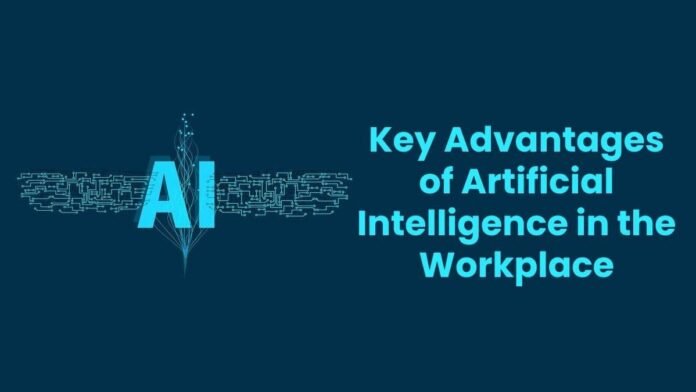One of the greatest advantages of Artificial Intelligence in the workplace is its ability to help companies make smarter decisions. While it’s not glamorous, it’s a powerful tool that helps businesses process large amounts of data faster and more accurately. For example, a bank’s AI can recommend financial products based on current market conditions and available funds. By automating these tasks, AI can unlock employees’ potential.
Artificial intelligence has the advantage of saving time. Unlike humans, machines don’t need breaks. They can work 24 hours a day and perform repetitive tasks without growing bored or getting tired. Additionally, they can process massive amounts of data quickly. By recognizing small defects, these machines can alert users of an upcoming event. In addition, they can automatically perform complex tasks without human oversight. For instance, an employee can focus on more complex activities and leave the tedious tasks to the machines.
Automation. The use of AI can increase workers’ productivity. With less administrative responsibility, people can concentrate on other aspects of their jobs. This frees up human resources for other tasks. For example, a factory can automate processes. This way, it can free up time for people who are already busy. A more effective workflow means a more effective process. With AI, employees can work more efficiently.
Automation. Artificial intelligence has many advantages. It can automate repetitive tasks, save money, and eliminate human error. It can improve the quality of management work. It can be trained to predict the behavior of customers and employees. Another big advantage is that it eliminates human error. It can also be used to improve customer service and recommendations. In the workplace, AI can also boost revenue. Intelligent machines can detect frauds, track trends, and make better decisions.
Benefits of AI in the Workplace are numerous. Aside from the potential for higher productivity, artificial intelligence is practical. The benefits of AI in the workplace include improved productivity, enhanced customer service, and reduced costs. Aside from this, it also improves the quality of work. A company can use AI in a variety of ways. By using AI in the workplace, companies can use a variety of tools.
Despite its downsides, artificial intelligence in the workplace will be more productive than humans in repetitive tasks. Moreover, it can detect fraud. Furthermore, AI can do multiple tasks. In the workplace, it can handle complex, repetitive jobs. In fact, it can be a valuable tool in the long run. The most important advantage is that it can handle multiple tasks at the same time. It can do all of these tasks.
The benefits of artificial intelligence in the workplace are many. Its ability to process large amounts of data in real time makes it an excellent tool for many businesses. This type of technology can automatically prepare one-on-one meetings and identify problems. Aside from making these meetings more efficient, AI can also improve team dynamics. The advantages of AI in the workplace are endless. The advantages of AI in the workplace are obvious.
The benefits of AI in the workplace are huge. The technology has made it possible for businesses to automate complex tasks. This is a big advantage of AI in the workplace. It can also save time and resources by reducing human errors. Its automation can save money. It can handle administrative tasks as well as human labor. Besides, it can automate repetitive jobs. Some of the other advantages of AI in the workplace are that it can predict the future.
Using AI in the workplace has many advantages. It can be used to automate routine tasks in the workplace. For instance, AI in the workplace can help companies save resources by enhancing collaboration between employees. It can be used to improve employee productivity. By using artificial intelligence, the business can develop and expand its model. This innovation can save both time and money. Those advantages of artificial in the work place are essential for a growing company.








